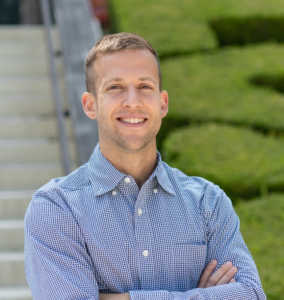Dillon Cogan completed his B.S. in chemistry at Michigan State University in 2013, where he worked with Prof. Jetze Tepe on the synthesis of small-molecule anticancer drugs. During his doctoral studies at the University of Illinois at Urbana-Champaign, Cogan trained in enzymology and structural biology under the guidance of Prof. Satish Nair. There, he investigated numerous enzymatic reaction mechanisms involved in the biosynthesis of modified peptide natural products. After obtaining his Ph.D. in biochemistry in 2019, Cogan moved to Stanford University as an NIH postdoctoral fellow to study the mechanisms of polyketide antibiotic biosynthesis by enzymatic assembly lines in the laboratory of Prof. Chaitan Khosla.
In 2023, Cogan joined USC Mann as an assistant professor in the Department of Pharmacology and Pharmaceutical Sciences. Cogan’s research group is investigating bacterial protein technologies used for programmable synthesis and detection of a large assortment of biomolecules. They are focused on (I) modular polyketide synthases that generate complex, bioactive compounds and (II) two-component signal transduction systems that regulate cellular behaviors in response to molecular cues. Research in the Cogan Lab involves a cross-disciplinary blend of biochemical, structural, and computational techniques aimed at characterizing natural biocatalysts/biosensors while seeking opportunities to either target or engineer them for sustainable, next-generation therapies.


